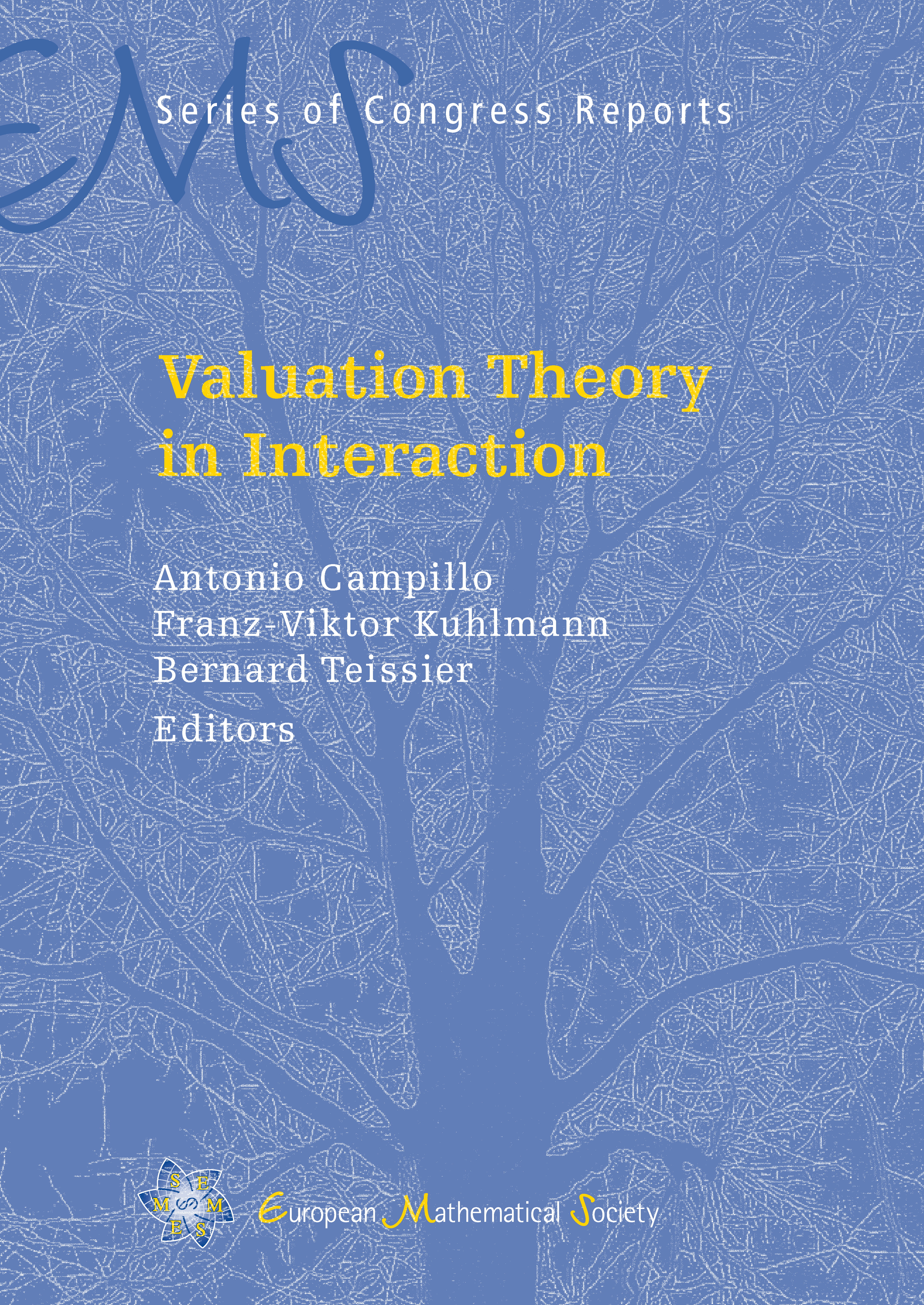Valuation Theory in Interaction
Editors
Antonio Campillo
Universidad de Valladolid, SpainFranz-Viktor Kuhlmann
University of Saskatchewan, Saskatoon, CanadaBernard Teissier
Institut de Mathématiques de Jussieu, Paris, France

A subscription is required to access this book.
Having its classical roots, since more than a century, in algebraic number theory, algebraic geometry and the theory of ordered fields and groups, valuation theory has seen an amazing expansion into many other areas in recent decades. Moreover, having been dormant for a while in algebraic geometry, it has now been reintroduced as a tool to attack the open problem of resolution of singularities in positive characteristic and to analyse the structure of singularities. Driven by this topic, and by its many new applications in other areas, also the research in valuation theory itself has been intensified, with a particular emphasis on the deep open problems in positive characteristic.
As important examples for the expansion of valuation theory, it has become extremely useful in the theory of complex dynamical systems, and in the study of non-oscillating trajectories of real analytic vector fields in three dimensions. Analogues of the Riemann-Zariski valuation spaces have been found to be the proper framework for questions of intersection theory in algebraic geometry and in the analysis of singularities of complex plurisubharmonic functions. In a different direction, the relation between Berkovich geometry, tropical geometry and valuation spaces, on the one hand, and the geometry of arc spaces and valuation spaces, on the other, have begun to deepen and clarify.
Ever since its beginnings, valuation theory and Galois theory have grown closely together and influenced each other. Arguably, studying and understanding the extensions of valuations in algebraic field extensions is one of the most important questions in valuation theory, whereas using valuation theory is one of he most important tools in studying Galois extensions of fields, as well as constructing field extensions with given properties. The well established topic of the model theory of valued fields is also being transformed, in particular through the study of valued fields with functions and operators, and through the study of types over valued fields.
The multifaceted development of valuation theory has been monitored by two International Conferences and Workshops: the first in 1999 in Saskatoon, Canada, and the second in 2011 in Segovia and El Escorial in Spain. This book grew out of the second conference and presents high quality papers on recent research together with survey papers that illustrate the state of the art in several areas and applications of valuation theory. The book is addressed to researchers and graduate students who work in valuation theory or the areas where it is applied, as well as a general mathematical audience interested in the expansion and usefulness of the valuation theoretical approach, which has been called the “most analytic” form of algebraic reasoning. For young mathematicians who want to enter these areas of research, it provides a valuable source of up-to-date information.